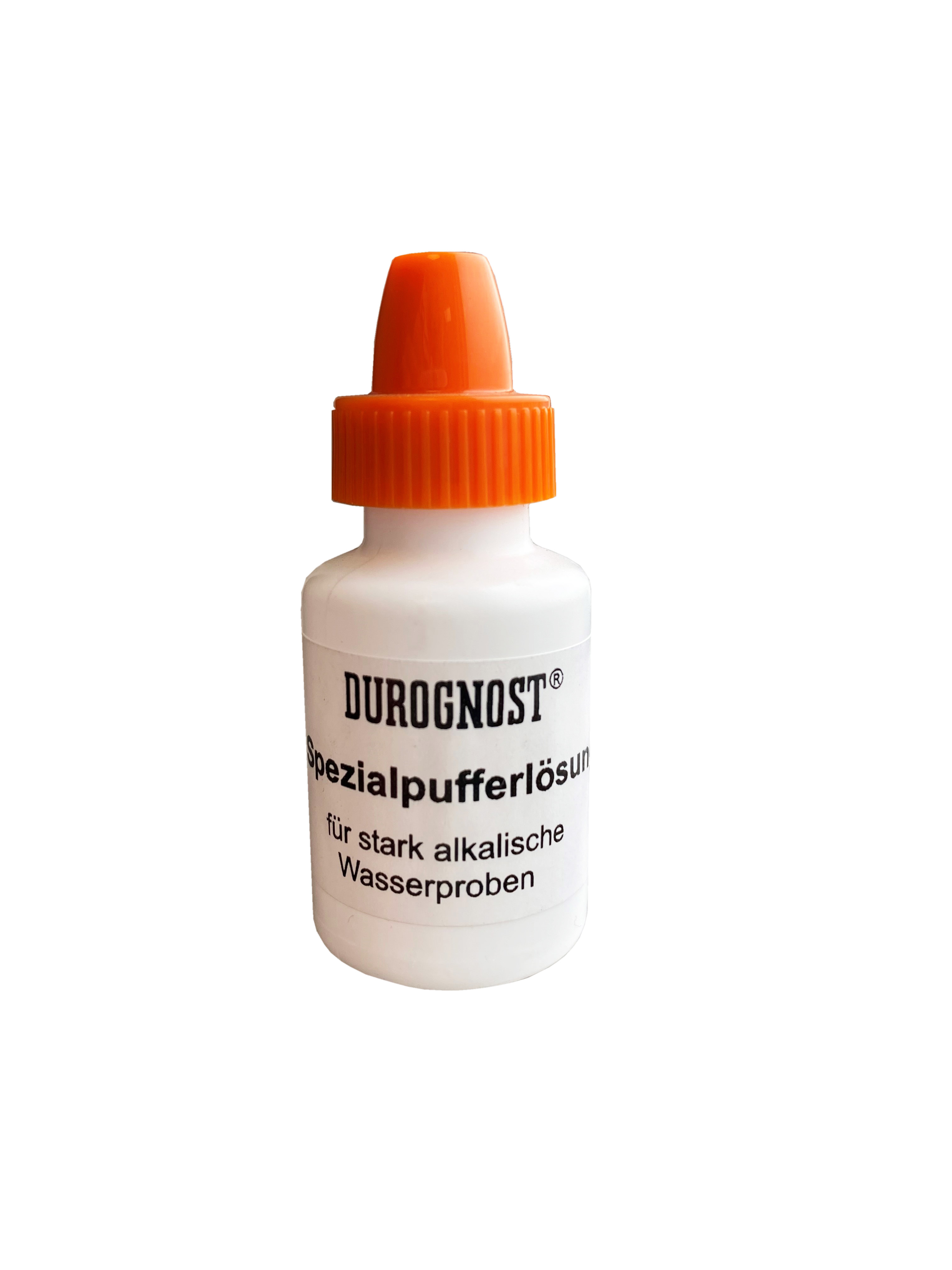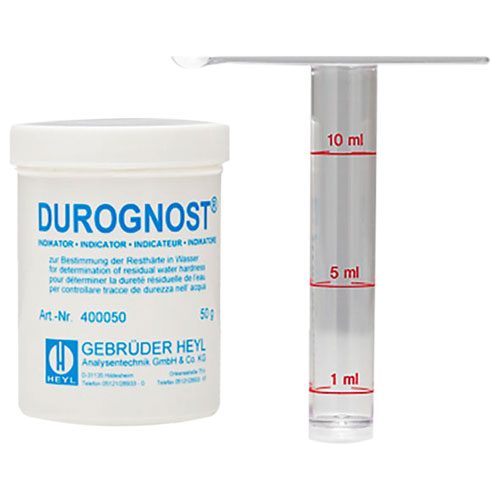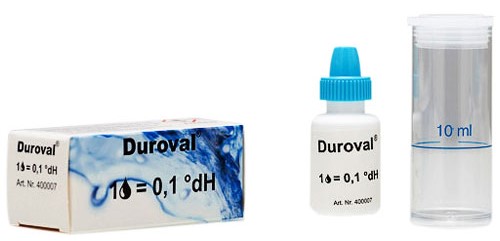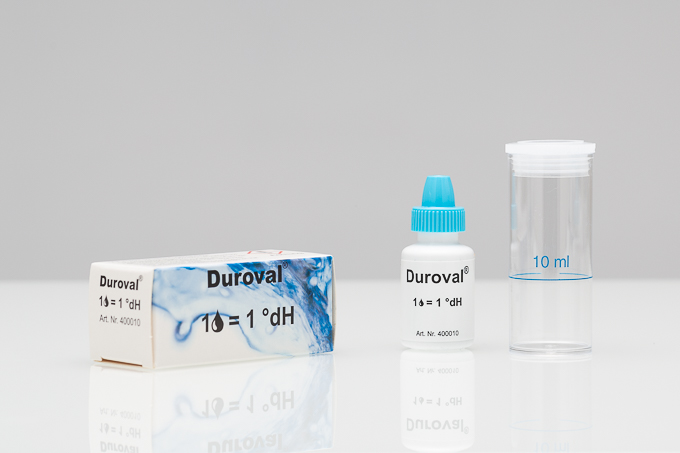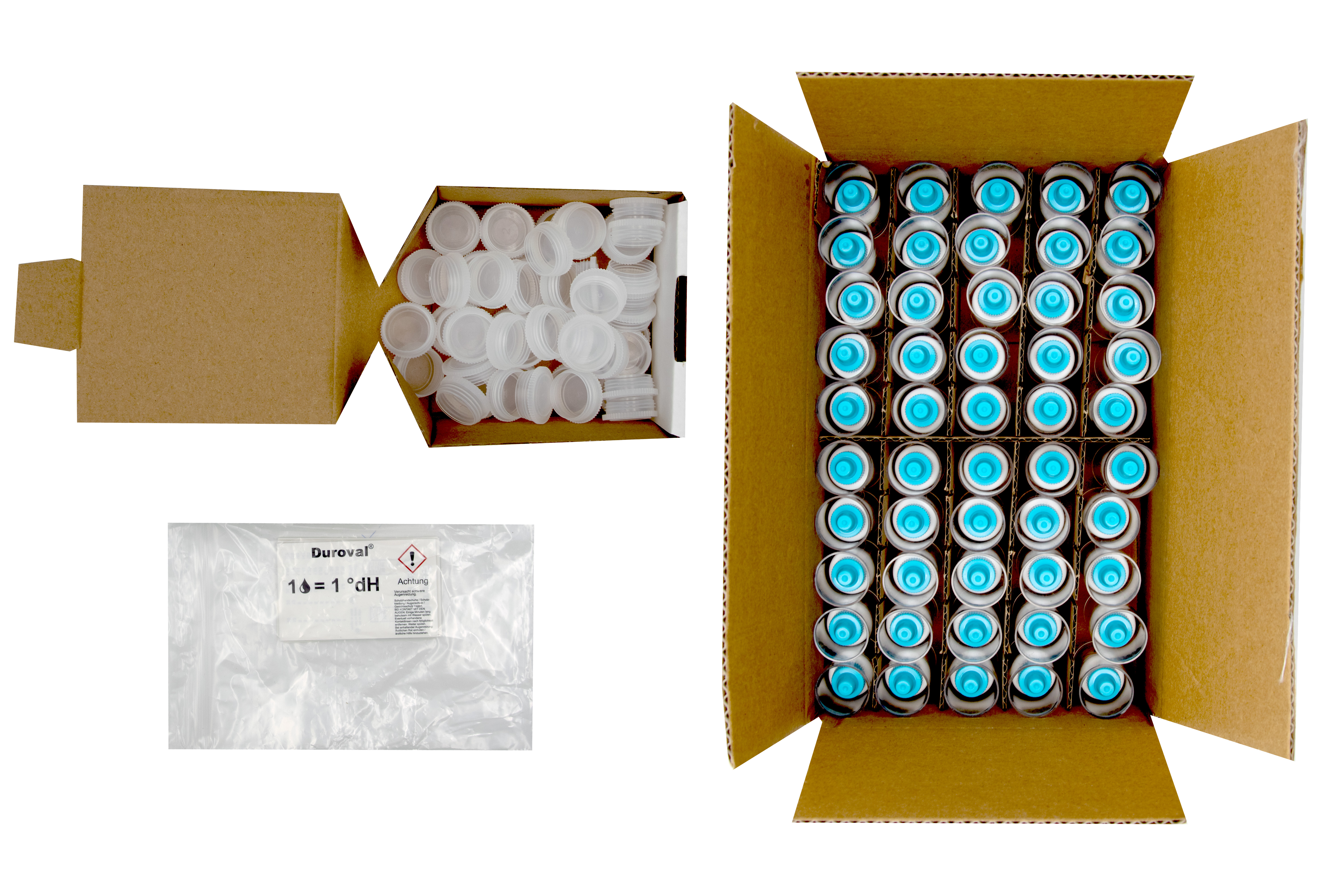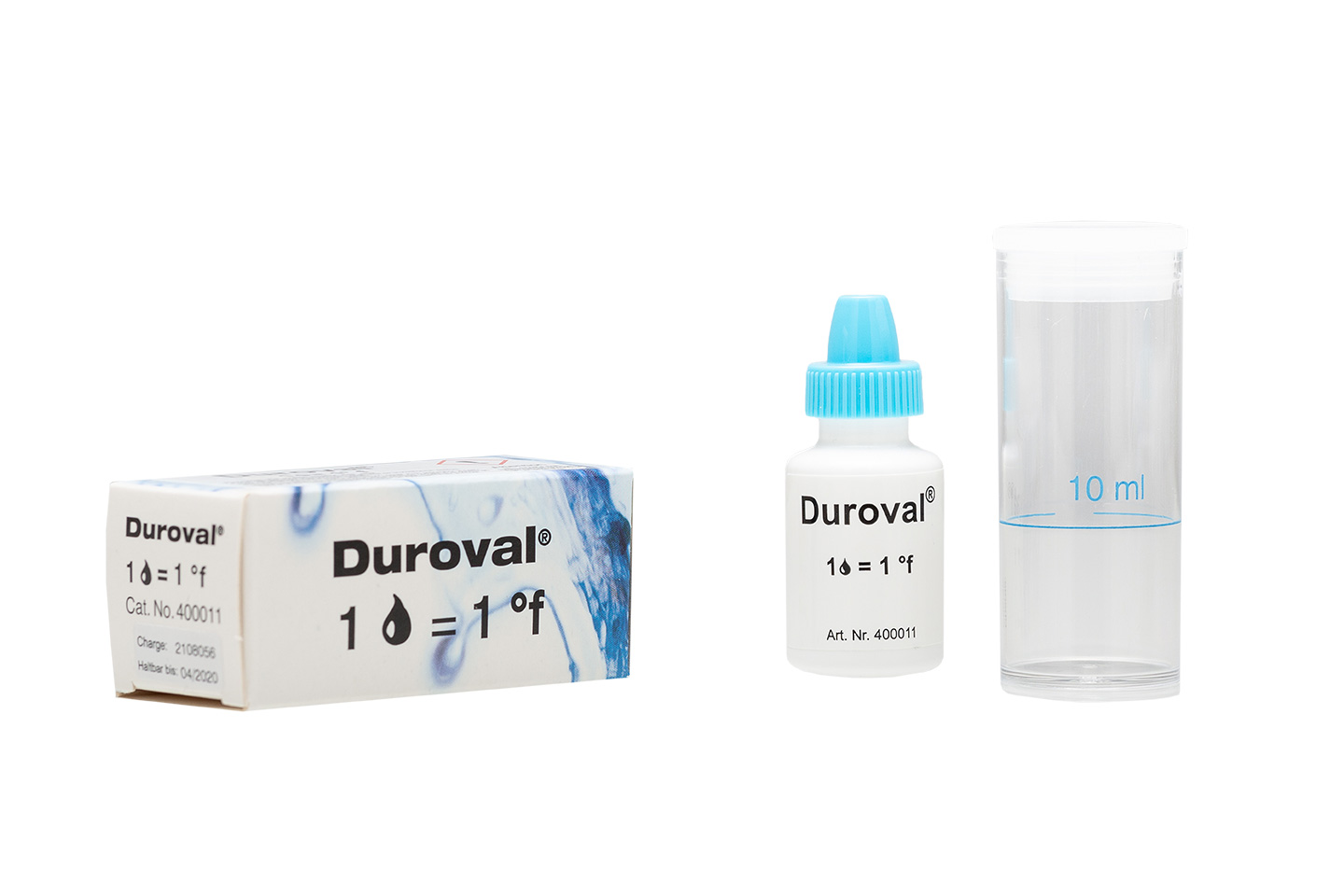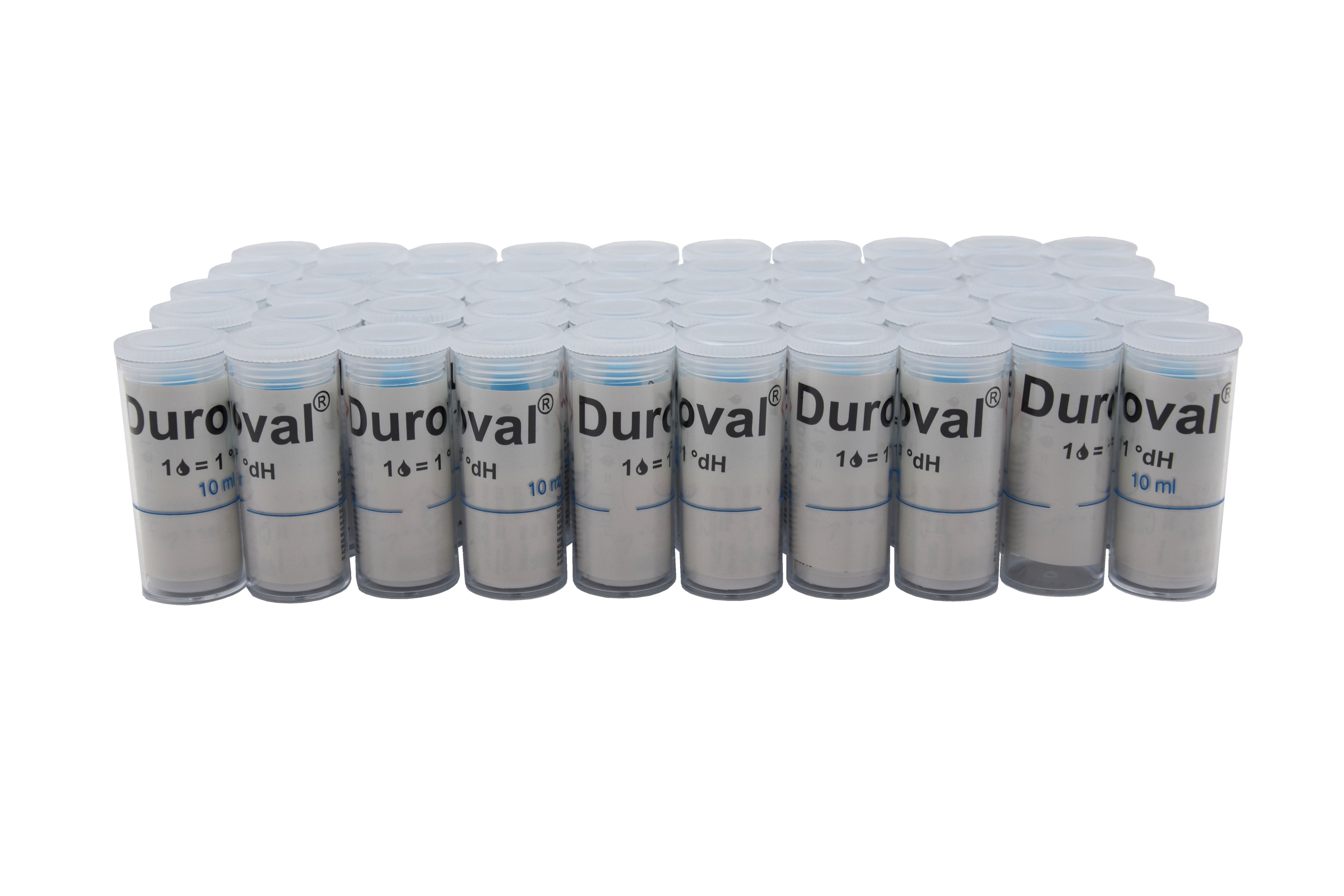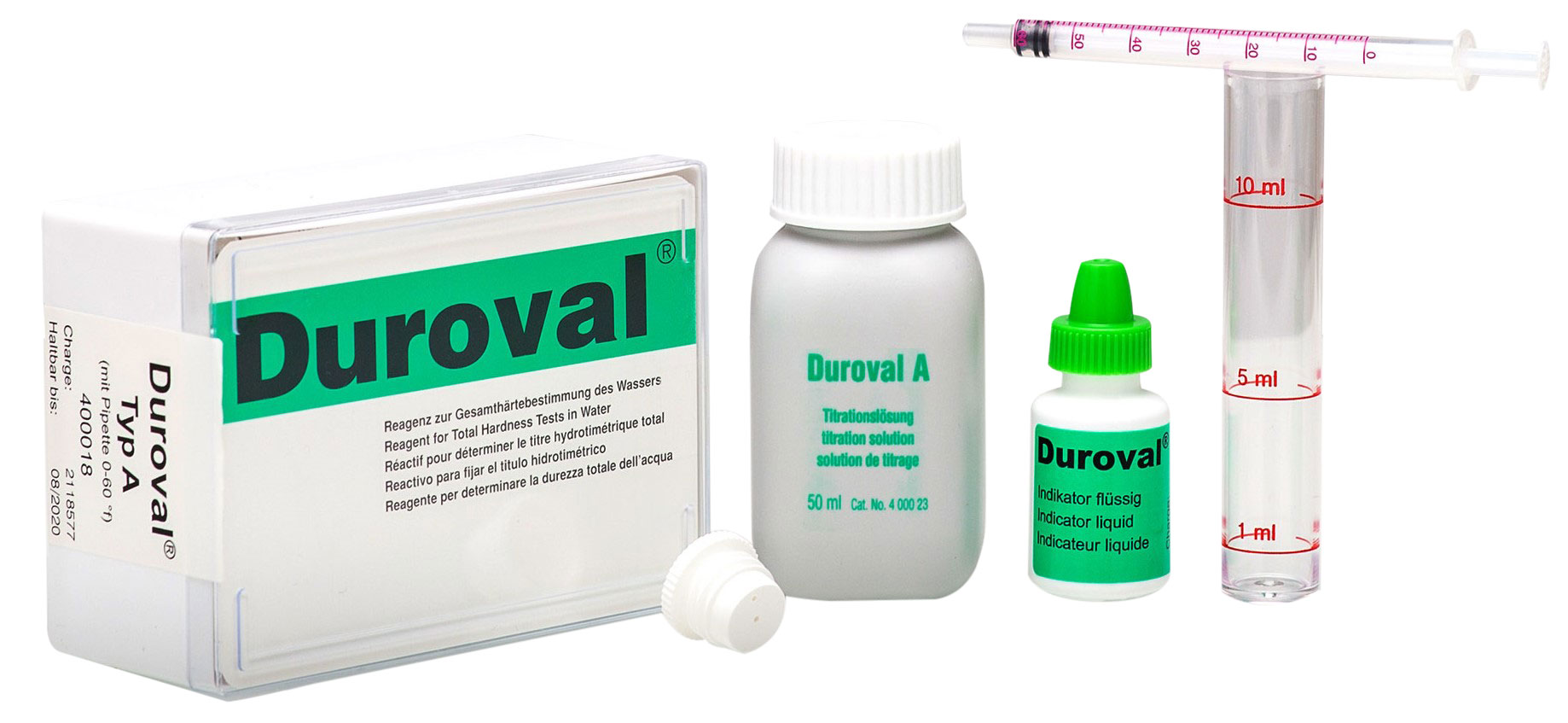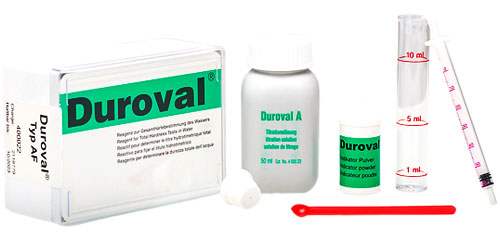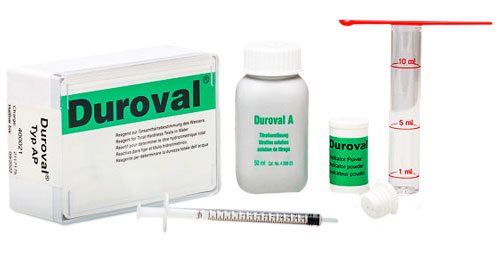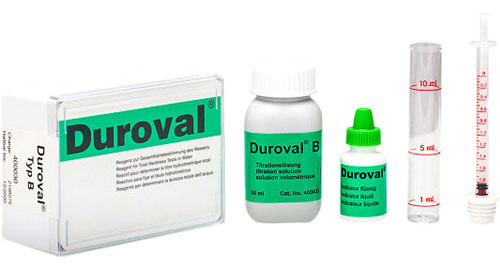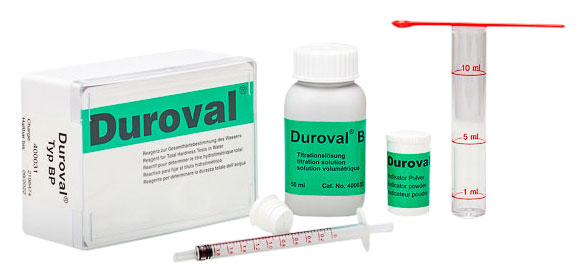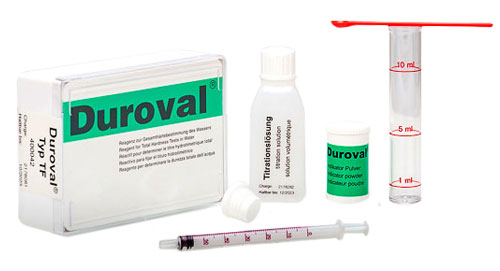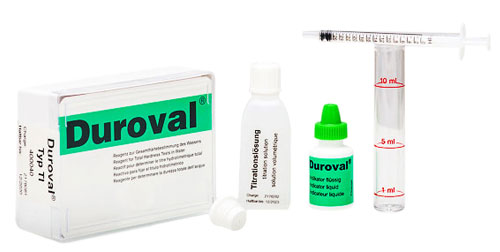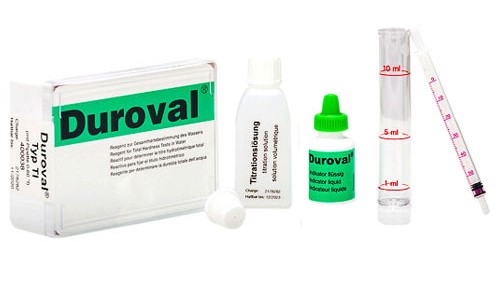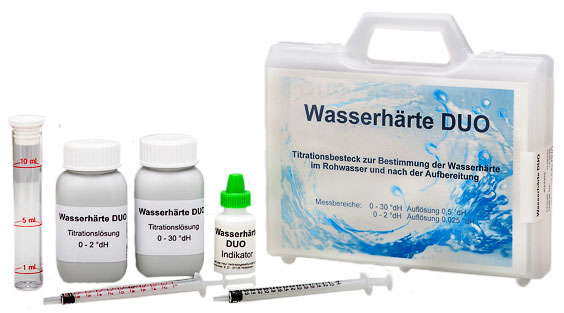Water hardness is caused by dissolved salts. Hardness is formed in natural waters primarily from magnesium and calcium hydrogen carbonate and sulfate dissolved from the soil and/or aquifers. The more salts are dissolved in the water, the higher the water hardness. Due to regionally very different composition of the geological underground, different water hardnesses and compositions are possible.
For this reason, water hardness is divided into the following ranges:
- < 4 degrees of German hardness (°dh) = very soft water.
- 4 - 7 degrees of German hardness (°dh) = soft water
- 7 - 14 degrees of German hardness (°dh) = medium hard water
- 14 - 21 degrees of German hardness (°dh) = hard water
- > 21 degrees of German hardness (°dh) = very hard water
The majority of water hardness is produced as carbonate hardness by dissolving lime (CaCO3) or dolomite (Ca-Mg mixed carbonate). Other input paths include dissolution by acidic components of precipitation or by nitric acid from nitrification as a result of agricultural fertilization.
- Water Analyzers
-
Liquid chemistry
- Indicators / Reagents
- pH / ORP Buffer and Conductivity Calibration Solutions
-
Test Kits
- Product Group
-
Parameters
- Water Hardness (Ca2+ und Mg2+)
- Carbonate hardness (KH)
- m-value (total alkalinity - acid capacity up to pH 4.3, KS 4.3)
- p-value (acid capacity up to pH 8.2, KS 8.2)
- Base capacity (KB82 - to pH 8.2)
- Aluminium (Al)
- Ammonia (NH4+)
- Chlorine (Cl DPD methode)
- Chloride (Cl-)
- Chromate Cr(VI)
- Iron (II + III dissolved- Fe3O4)
- Hydrazine (N2H4)
- Carbon dioxide (CO2)
- Copper (Cu)
- Cooling lubricants (KSS)
- Nitrite (NO2)
- pH
- Phosphate (P2O5 - Ortho-Phosphate)
- Polyamines (PA - circuit water)
- Silicate (SiO2 - dissolved)
- Sulphate (SO4)
- Sulphite (SO32)
- Analysis Cases and Analysis Cabinets
- Multiparameter Handheld Photometer
- Silver resin
- Accessories
- Controls
- Electrodes and sensors
- Hand-held measuring instruments and analysis cases
- NeoTec World
- Clinical Solutions
- Blog
- Seminars & Webinars
- Ozone and UV technology
- Dosing pumps
- Gas Measuring Instruments
- Hygiene and Disinfection
- Water Meters
- Accessories
Filter products




